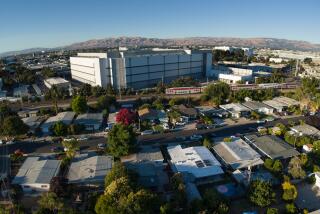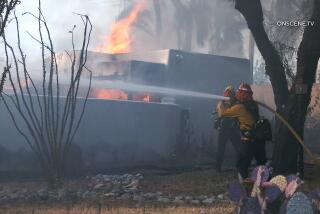Riverside OKs Construction of 2 Power Plants
- Share via
Striving to meet increased energy demands on sweltering summer days, the Riverside City Council voted Tuesday to build two power plants.
While most cities and counties are looking to cut costs at a time of fiscal uncertainty, there was little discussion and no controversy before the council’s 7-0 vote to spend $75 million to build the 50 megawatt “peaker” plants and a transmission line. The plants will be off Payton Avenue north of the airport.
“The Public Utilities Department is our flagship department. They’re trying to look not simply at continuing the status quo, but to being prepared for emergencies and being prepared for the uncertainties of the market,” said Mayor Ron Loveridge. “I strongly favor the proposal.”
The city’s utilities department, more than a century old, has a glowing reputation in Riverside, where residential bills are 10% lower than a typical Edison bill and business utility bills are 25% lower. The new plants will help keep utility rates stable for both homeowners and businesses, said utilities director Tom Evans.
The city is looking to generate more energy because two long-term contracts with the California Department of Water Resources end in 2005 and 2008, he said. The state agency both generates power and has long-term contracts with other generators.
“Instead of going out and getting new contracts with someone else, or another one with the [state], by owning our own plants, we have the ability to control our own destiny in terms of price,” Evans said.
The plants, which will be fired by natural gas, would be tapped only during the hottest hours of the hottest summer days, when air conditioner use creates huge peaks in energy consumption. During the winter, peak consumption is typically 200 to 225 megawatts. On the hottest days of summer, the energy demand is more than twice that. That’s when the plants would run, Evans said.
The plants will not be connected to the state grid, so they could keep critical services running in a catastrophe.
More to Read
Inside the business of entertainment
The Wide Shot brings you news, analysis and insights on everything from streaming wars to production — and what it all means for the future.
You may occasionally receive promotional content from the Los Angeles Times.











